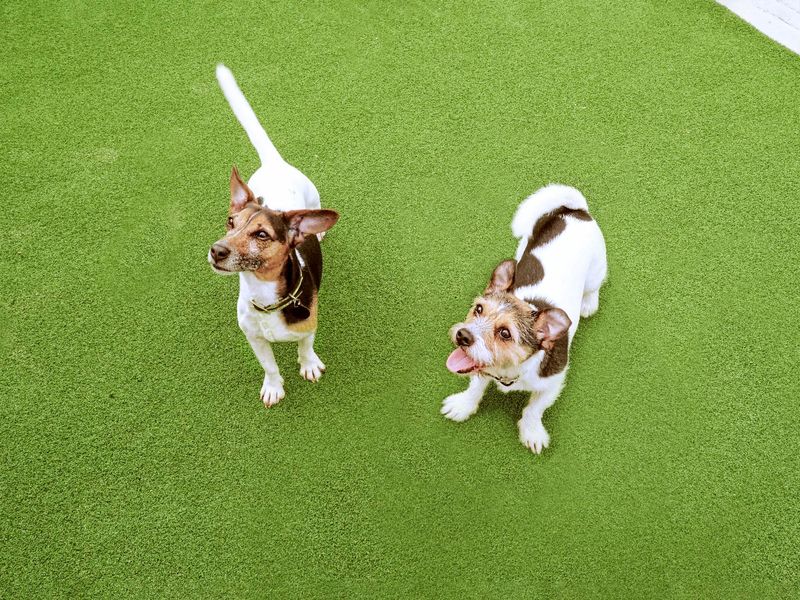Dominance
Find out why dominance theory is outdated, and positive training methods are effective.

Dominance theory is an outdated and debunked theory of dog behaviour saying that dogs want to gain a higher social status relative to other dogs or people. The theory is that dogs will show aggression to achieve dominance. This has been a popular way to explain dog behaviour, but current research shows that it is incorrect.
The dominance theory is a misleading interpretation of why dogs behave in the ways that they do. It has resulted in people using training techniques that use punishment or physical force. These types of training techniques claim that people need to ‘show the dog their place’ at the bottom of the ‘pack’.
How did the dominance theory come about?
Very early research into wolf behaviour looked at a group of unrelated wolves who were living in captivity. Researchers saw the wolves using aggression and fighting over valuable resources like food and mates. The most aggressive wolves always got the best of everything.
As dogs are directly descended from wolves, researchers suggested that dogs would also fight to be the leader or ‘alpha’ of their pack. The theory became so popular that it was used to interpret interactions between dogs and people. People assumed that dogs saw their owners as competition for the position of ‘top dog’.
What is wrong with the dominance theory?
The problem with this theory is that it’s based on studying the behaviour of unrelated wolves living in a very unnatural environment. The wolves were captive with limited resources. They didn’t behave as they would in the wild.
Up-to-date research studying the behaviour of wolf groups living in the wild has shown that they are not aggressive with each other at all. They don’t fight over resources like food, shelter and mating opportunities. They live in cooperative family groups. Offspring remain with the family to learn from their parents and to help raise other litters of wolf pups.
When resources are scarce, rather than fighting, wolves spread out into smaller groups across a wider range of land. They avoid conflict where possible. They want to avoid getting hurt themselves.
On top of this, although dogs originated from wolves, they are very different. They have evolved over thousands of years into a different species altogether.
Dogs are social animals who base their relationships on individual experiences. They can learn how another dog is feeling by reading their body language and changing their own behaviour in response. This is very different from the idea that their single desire is to dominate each other.
How might dominance theory affect dogs today?
If an owner believes that their dog is trying to be the boss, they might feel they have to make it clear to the dog that they are not. An owner might do this by using punishment and discipline, which could scare and hurt the dog.
Using methods that aim to control a dog’s behaviour with physical force and shouting are not a good idea. They will likely result in the dog feeling intimidated and scared. Examples of such training methods are:
- pushing or pulling a dog into a position
- holding a dog down
- using a choke chain
- using an electric shock collar
- shouting
- smacking
These forms of control can damage the bond between a dog and their owner and might even make the dog’s behaviour worse. Physical discipline could leave the dog feeling anxious, fearful and unlikely to trust their owner. Positive training methods, using rewards for good behaviour, are much more effective and better for everyone.





